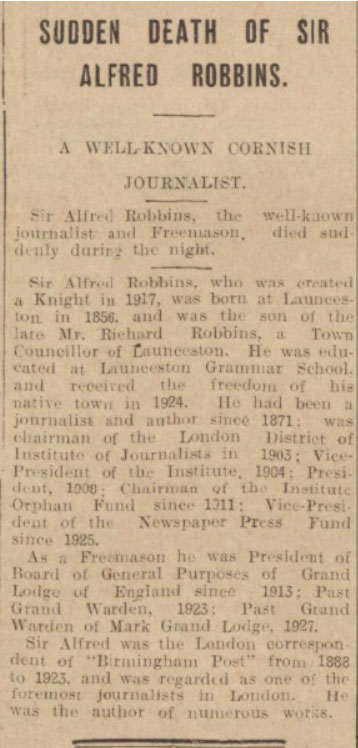.
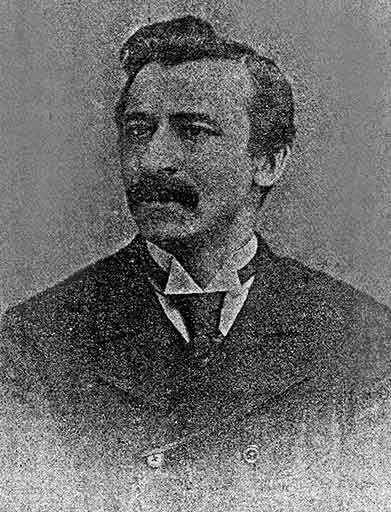
Alfred was born on the 1st of August 1856 to Richard and Mary (nee Farthing) Robbins at Launceston. His father was a shoemaker and town councillor running a successful business in Broad Street, Launceston.
Alfred was educated at Launceston Grammar school under the headmaster Samuel Childs Clarke at St. Thomas road.
On leaving school he first worked as a Chemist but his mind was drawn to the world of Journalism and he would spend spare time in the offices of the two local newspapers. He entered the world of Journalism full time in 1879 at the age of 22. He became a well-respected journalist as London Correspondent for the Birmingham Daily Post from 1888 until 1923. In 1903 he was made the chairman of the London District of Institute of Journalists becoming vice president in 1904 and president in 1908. From 1911 to his death he was chairman of the Institute Orphan Fund. From 1925 he was vice president of the Newspaper Press Fund.
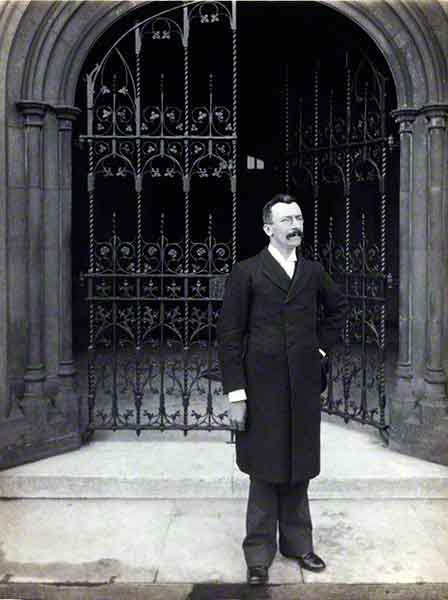
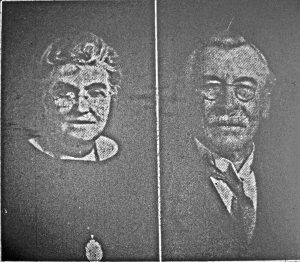
He married Ellen Pitt of Hitchin, Hertfordshire on the 22nd of April 1861. Together they had five children; Alfred Gordon Robbins 1883, Helen Robbins 1886, Alan Pitt Robbins 1888-1967, Clifton Robbins 1890, and Grenville Robbins 1893.
He was a Freemason and became president of the Board of General Purposes of the Grand Lodge of England in 1913. In 1923 he was made Past Grand Warden and in 1927 Past Grand Warden of Mark Grand Lodge. On a mission with the Freemasonry to the United States, he had been received by President Coolidge at the White House.
Robbins tried to bring a motion in Grand Lodge for the creation of a London Grand Lodge in the early 1900s but was ruled out of order. This prompted a distinguished group of London masons to form a committee to investigate the best form of administration for London Freemasonry. To head off any discontent, the Grand Master, the Duke of Connaught announced the creation of London Rank in December 1907, the first time that London was recognised masonically as an entity.
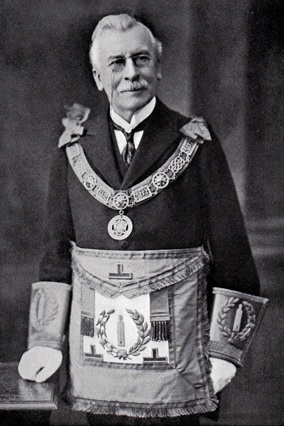
In 1917 Alfred received a Knighthood.
From ‘The Times’ 1917
The King has been pleased to make the following appointments:— …
Knights.
His Majesty has been pleased to confer the honour of Knighthood upon:—
Alfred Farthing Robbins, Esq., F.J.I.
London correspondent of the Birmingham Daily Post since 1888, and equally well known in Fleet-street, the Lobby of the House of Commons, and at theatrical first nights, he was president of the Institute of Journalists in 1908 and has been chairman of its Orphan Fund since 1911. A prominent Freemason, he is president of the Board of General Purposes in the United Grand Lodge of England.
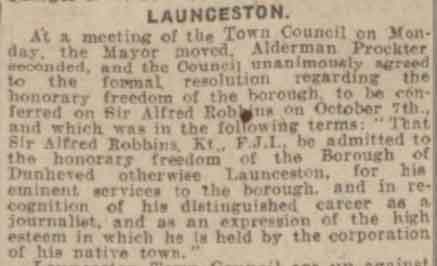
He was an authority on the work of Charles Dickens and was president of the Dickens fellowship. Alfred was also an author in his own right and some of his works include;
Five Years of Tory Rule: A Lesson and a Warning (1879)
Practical politics; or, The liberalism of today (1888)
The early public life of William Ewart Gladstone: four-times prime minister (1894)
Launceston, Past and Present
In October of 1924, he received the freedom of Launceston.

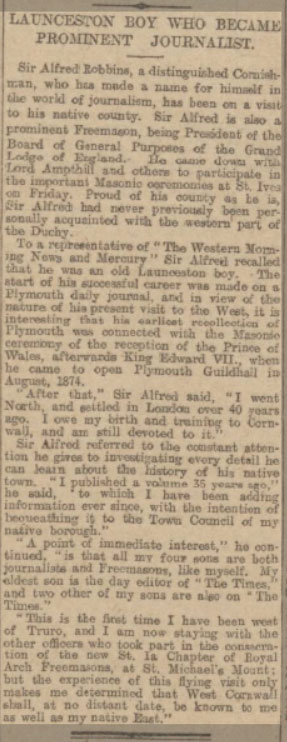
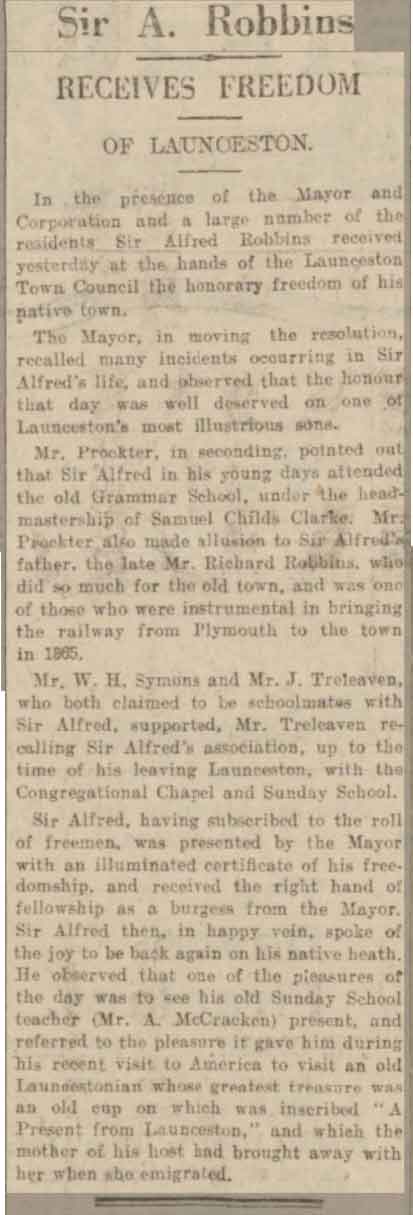
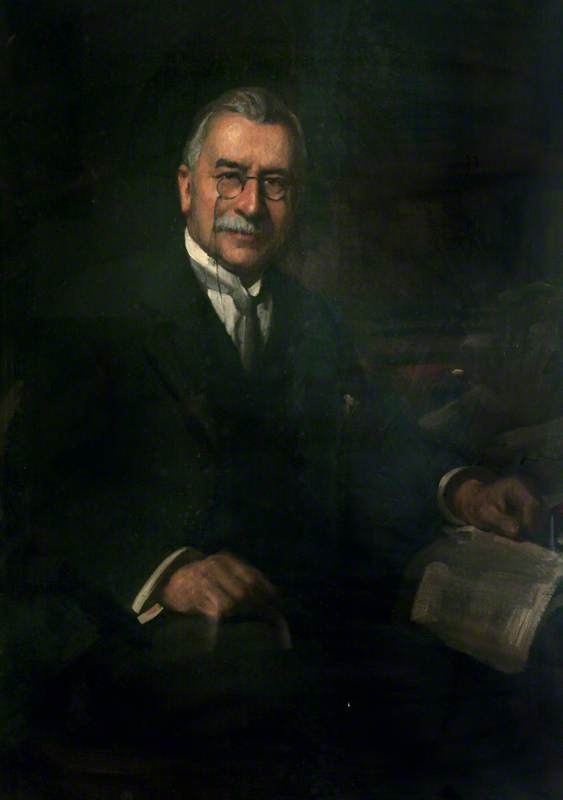
Alfred died suddenly on the 10th of March 1931.
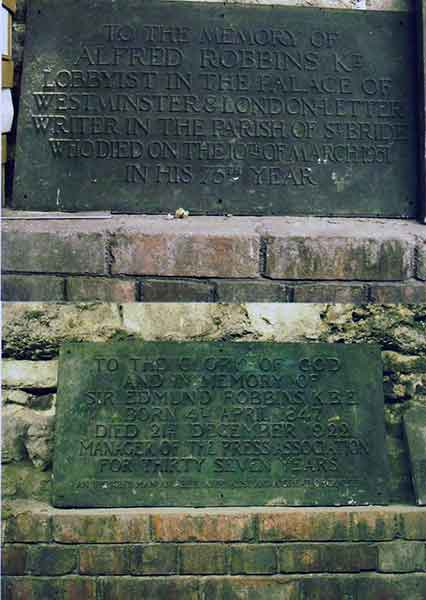
Visits: 111

